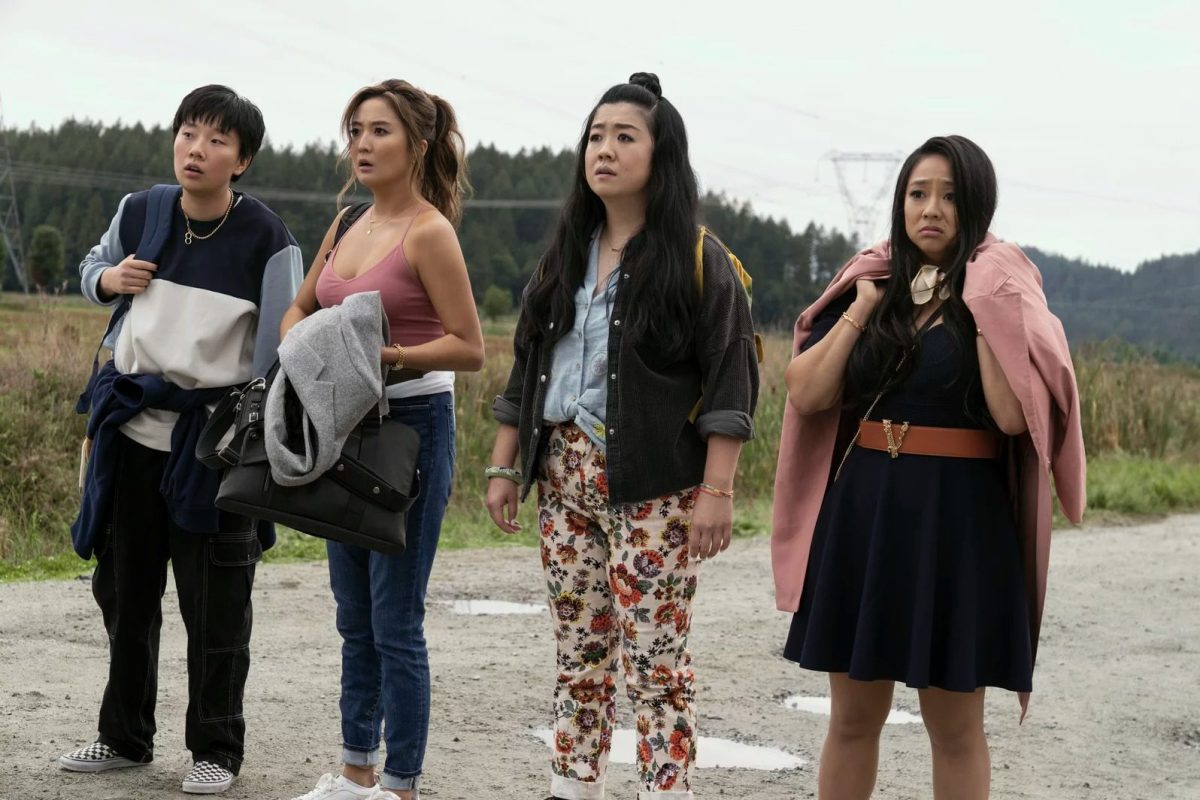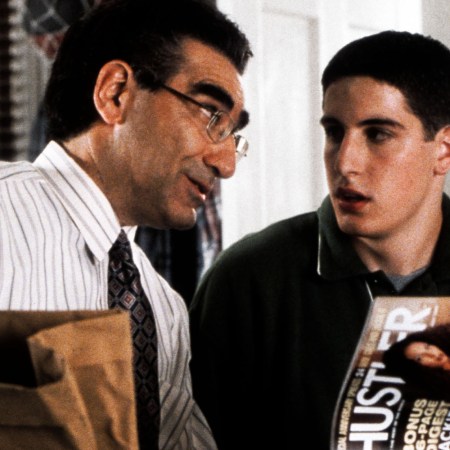It is the sacred right of any friend-group comedy to not be compared to The Hangover, because The Hangover did not invent the three-to-four-friends-on-a-mission comedy and, if you really want to get into it, The Hangover is not very funny. It’s supposed to be a comic mystery about the dark heart of American-bro masculinity, and it gets so caught up in its own self-image (and often indifferent plotting) that it forgets to bother with the business of building actual comic tension in between sour outbursts. It was particularly galling (if not exactly shocking) to hear Bridesmaids, a movie about genuine friendship dynamics, belated coming-of-age and particularly female thirtysomething anxieties, described as a Hangover for ladies back in 2011, at a time when The Hangover Part II was busy doubling down on its own sneering disregard for humanity (and especially women).
Yet in 2023, 10 years after the barely remembered (and, again, barely comedic) completion of the Hangover trilogy with The Hangover Part III, the original film remains a seemingly unavoidable comparison point where a small, unlikely friend group gets into a series of debauched shenanigans. Again, The Hangover invented none of this — but it did ground its outlandishness just enough for its fans to believe in it. Not emotionally, necessarily, but physically: Part of the trilogy’s attempt to “look like a real movie,” as plenty of critics described it at the time, made it feel less like an overlit sitcom writ too large. (Plus, a lot of sitcoms have, you know, jokes.) The new movie Joy Ride, an inclusive and sex-positive comedy that includes thoughtful consideration of Asian-American identity, would probably not align itself with The Hangover in most respects. But it does clearly crave some of that real-movie cred to lend its gags some extra weight.
It also has the mass-appeal convenience of its quartet of road-tripping Asian-American leads mapping out pretty easily to the Hangover guys: Lolo (Sherry Cola) is the blunt-spoken, give-no-fucks libertine in the Bradley Cooper role. Kat (Stephanie Hsu) is the Ed Helms figure of would-be responsibility, with the very funny twist that she has plenty in common with the wilder Lolo but is attempting to rebrand herself as a virginal Christian for her boyfriend (and image as a famous actress). Lolo’s cousin Deadeye (Sabrina Wu) is the Zach Galifianakis equivalent, designated to say a bunch of weird stuff whether or not it adds up to a coherent vision of a person.
The odd one out is also and appropriately the movie’s lead: Audrey (Ashley Park), who was adopted from China as a baby by white American parents and met Lolo as the only other Asian-American kid in town. The two bonded for life, but Audrey feels perpetually caught between a desire to assimilate and an inability to fully do so. She’s a high-achieving lawyer who will always be both “other” and striving to appear as one of the bros. Her work brings her to China, with Lolo in tow as her translator, Deadeye in classic hanger-on mode and resident Kat eager to show them (or at least Audrey) around. In a foreshadowing of what becomes the movie’s operating procedure, convoluted/nonsensical circumstances force Audrey on an initially unwanted mission to find her birth mom, with a little help from her friends.
From this point, Joy Ride is in the odd position of placing its comic archetypes in a more believable and compelling sociological context than the plastic bros of The Hangover, while zig-zagging ever more haphazardly away from a recognizable reality in its basic story progression. Plenty of comedies prioritize trailer-ready set pieces and red-band-trailer-ready raunch moments over classically constructed farce, but as directed by Adele Lim, Joy Ride feels particularly frazzled and held together with masking tape. The comic progression and escalation between the would-be showstoppers is erratic, sometimes even confusing, as the movie ricochets between forced drug intake that should cause multiple deaths, heartfelt crises of identity, screaming threeway sex montages and stock conflicts between the childhood best friend and the college best friend.
With “No Hard Feelings,” Jennifer Lawrence Finally Has a Movie That Fits Her Persona
Could this signal the return of the R-rated comedy?The actors do their best to maintain a sense of depth and reality, and they land plenty of individual laughs along the way. Hsu in particular finds a strong outlet for her occasional too-much-ness as an actress who may not be virtuostic enough to disguise her roiling horniness. On the more serious side, Park does some touching work as the conflicted Audrey, only somewhat undermined by the fact that at times, she’s essentially doing an instant studio remake of the lovely recent drama Return to Seoul. In that film, another brash young Asian-American woman who purports to have little interest in locating her birth mother winds up on that journey of self-discovery anyway. (Seoul is now available to rent digitally, and it’s more than worth it as one of this or last year’s best films, depending on how you count its tiny theatrical release.)
It’s no more fair to compare the mainstream raunch-com Joy Ride to the quiet, prickly drama Return to Seoul than it is to hold it up against a decade-old Todd Phillips trilogy — and for that matter, it’s actually kind of impressive that Lim has made a movie that evokes both of those things at once. But there’s a sweatiness to Joy Ride that could probably be rinsed off with stronger craft, plus a little more confidence that audiences don’t need to be goosed with constant montages. The screenwriters have worked on the animated sitcom Family Guy, and there’s a bit of that show’s lazily self-satiric attention-seeking vulgarity at play here. In this context, the screenplay’s thoughtful observations about cross-cultural identity constructions are clumsily assimilated into the feature comedy’s standard third-act sincerity break. Maybe the filmmakers felt like some formula comedy and buzzworthy antics were necessary to sell Audrey’s secret ache at the center of the film — and maybe they were right. Joy Ride is a fun-enough movie, and I bet audiences will love it. They should; it’s participating in that comic tradition older than Hangovers: A desperate eagerness to please.
This article appeared in an InsideHook newsletter. Sign up for free to get more on travel, wellness, style, drinking, and culture.
























